外研版必修5 Module 3 Adventure in Literature and the Cinema Grammar课件(47张ppt)
文档属性
| 名称 | 外研版必修5 Module 3 Adventure in Literature and the Cinema Grammar课件(47张ppt) |
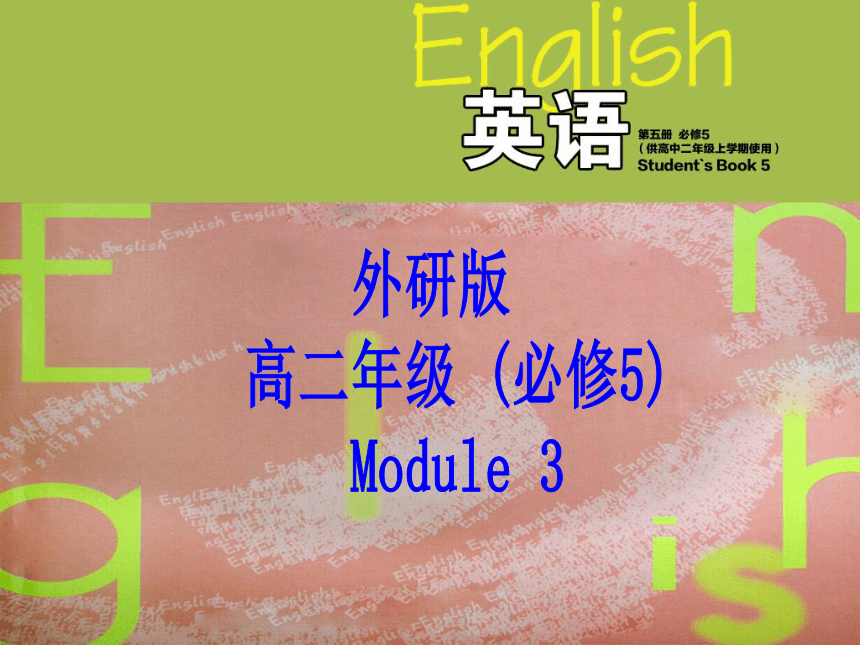
|
|
| 格式 | zip | ||
| 文件大小 | 2.4MB | ||
| 资源类型 | 教案 | ||
| 版本资源 | 外研版 | ||
| 科目 | 英语 | ||
| 更新时间 | 2022-02-11 00:00:00 | ||
图片预览


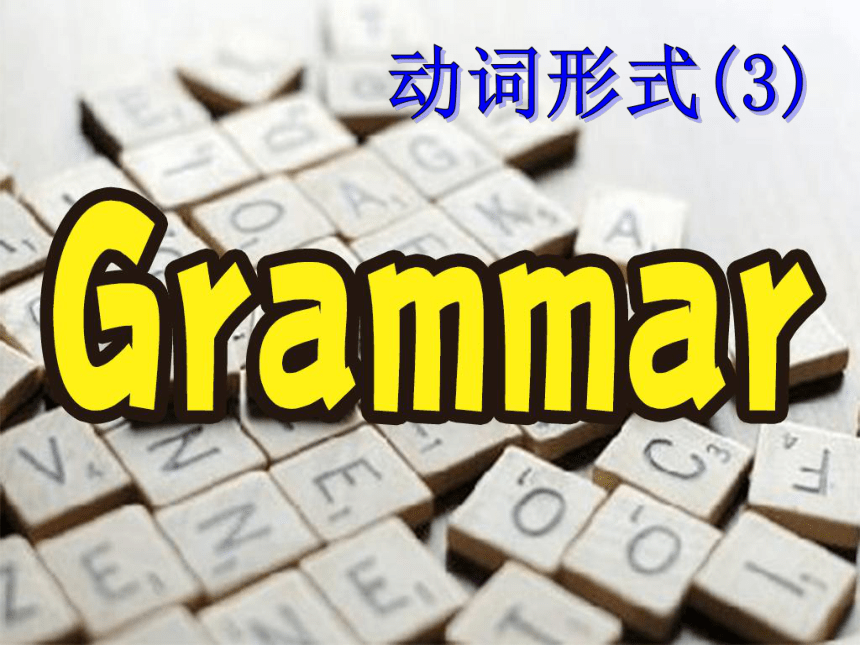
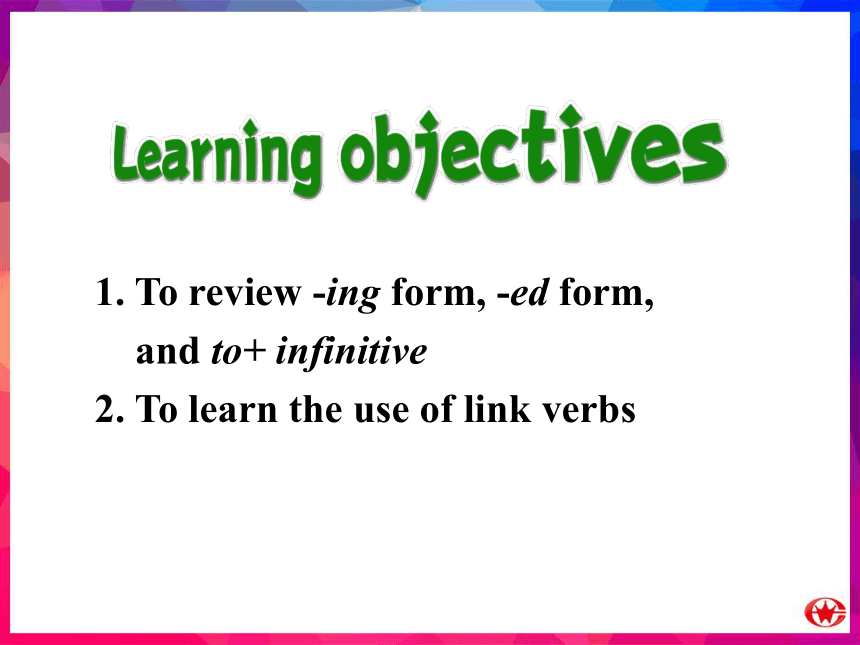
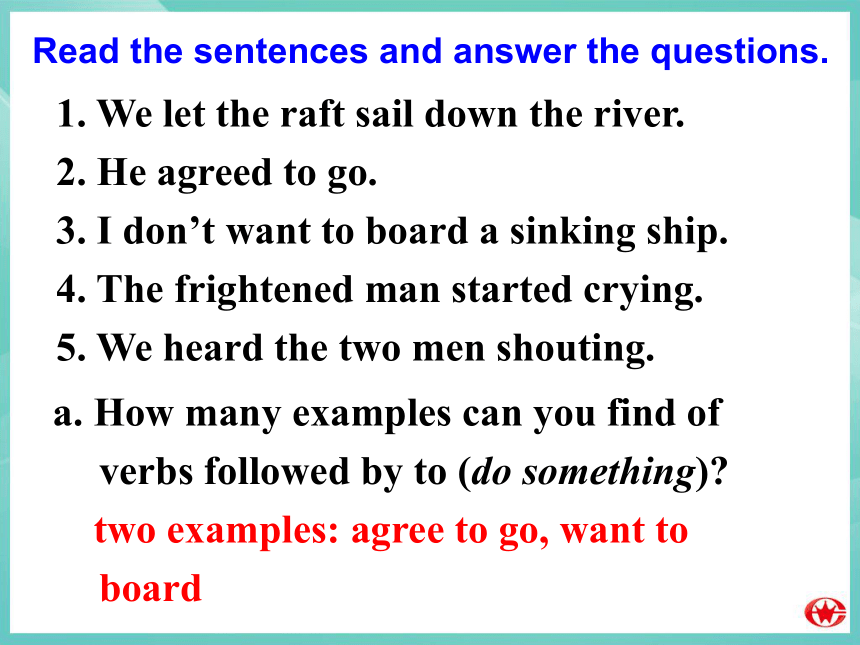
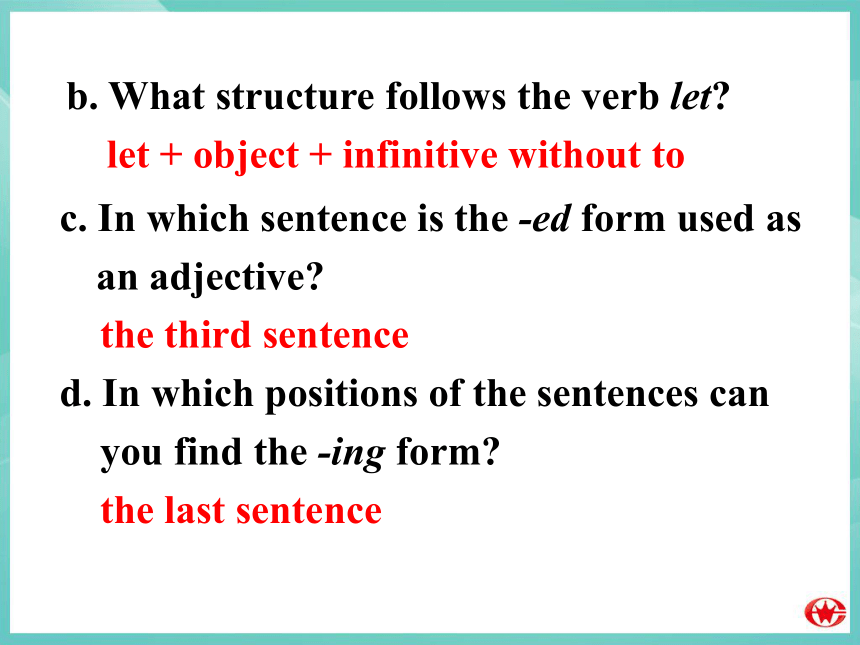

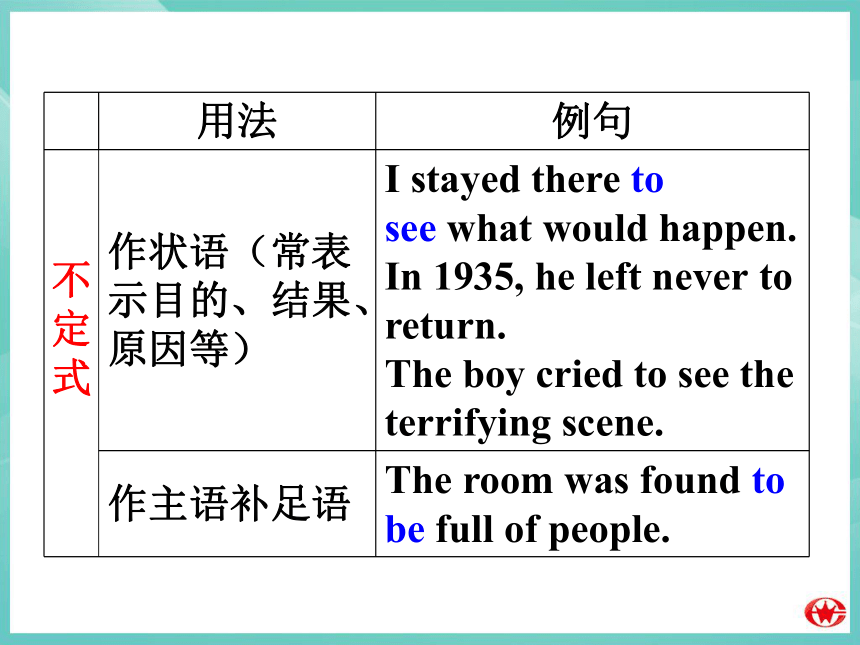


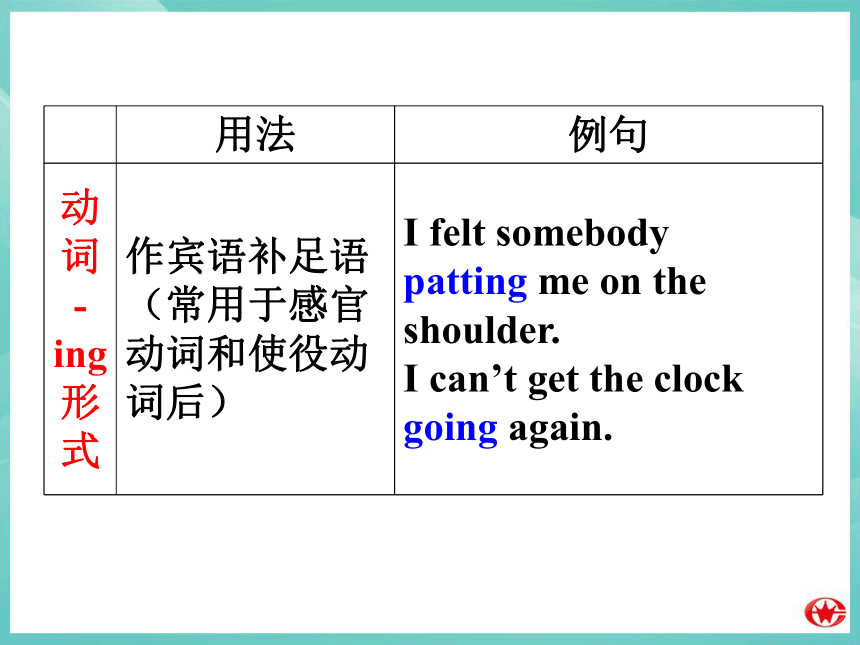
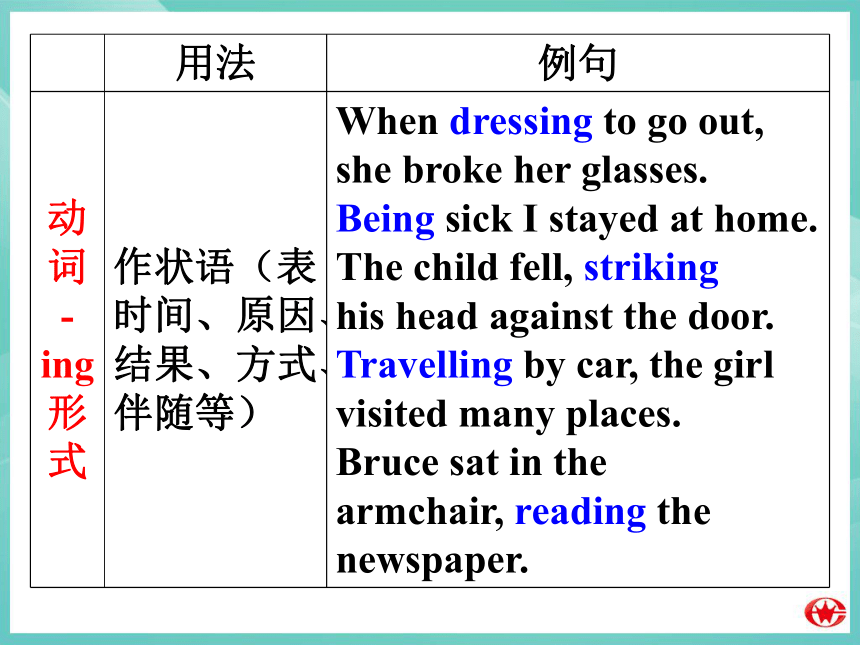
文档简介
(共47张PPT)
1. To review -ing form, -ed form,
and to+ infinitive
2. To learn the use of link verbs
1. We let the raft sail down the river.
2. He agreed to go.
3. I don’t want to board a sinking ship.
4. The frightened man started crying.
5. We heard the two men shouting.
Read the sentences and answer the questions.
a. How many examples can you find of verbs followed by to (do something)
two examples: agree to go, want to board
b. What structure follows the verb let
let + object + infinitive without to
c. In which sentence is the -ed form used as an adjective
the third sentence
d. In which positions of the sentences can
you find the -ing form
the last sentence
用法 例句
不定式 作主语 To fetch water before breakfast is a rule to them.
It is difficult to answer that question.
作表语 The important thing is to save lives.
作宾语 She likes to play with the child.
My uncle feels it his duty to help others.
作定语 The next train to arrive was from New York.
非谓语动词用法小结
用法 例句
不定式
作状语(常表示目的、结果、原因等) I stayed there to see what would happen.
In 1935, he left never to return.
The boy cried to see the terrifying scene.
作主语补足语 The room was found to be full of people.
用法 例句
不定式
作宾语补足语(see, feel, notice等感官动词和make, let, have等使役动词后作宾语补足语的不定式要省略to) I’ll leave you to attend to the matter.
We felt the house shake.
They made their son go to bed early.
用法 例句
动词
-ing形式 作主语 Saving is having.
It's great fun sailing a boat.
作表语 Her job is washing clothes.
This film is more exciting than any that I've ever seen.
作宾语 The pain in my throat made speaking difficult.
作定语 Hank may be in the reading
room.
He asked an embarrassing
question.
用法 例句
动词
-ing形式 作宾语补足语(常用于感官动词和使役动词后) I felt somebody
patting me on the shoulder.
I can’t get the clock
going again.
用法 例句
动词
-ing形式 作状语(表时间、原因、结果、方式、伴随等) When dressing to go out, she broke her glasses.
Being sick I stayed at home.
The child fell, striking
his head against the door.
Travelling by car, the girl visited many places.
Bruce sat in the armchair, reading the newspaper.
用法 例句
动词
-ed形式 作表语 Never touch an electric wire when it is broken.
作定语 His job is to take care of the wounded soldier.
作状语 Laughed at by many people, he continued his research.
作宾语补足语 I would like the matter settled immediately.
1. The sight of the boat going under water was ________. (worry)
2. Huck got _______ (excite) when he realized there was someone on the boat.
3. The man with the gun had a ________ (satisfy) expression on his face.
4. The man on the floor was clearly _________ (frighten).
worrying
excited
satisfied
Complete the sentences with the correct form ( - ing or – ed ) of the verbs.
frightened
5. Huck and Jim had lots of __________ (frighten) experiences on the river.
6. I didn’t know you were _________ (interest) in Mark Twain.
7. Yes, I find his novels very ________ (excite).
8. Twain certainly had an unusual and __________ (interest) life.
frightening
interested
exciting
interesting
1. Jim wanted __________ (get away) quickly.
2. Huck suggested ______ (take) the men’s boat.
3. He told Jim to stop _______ (make) a noise.
4. Then he persuaded Jim _______ (help) him.
to get away
taking
making
Complete the sentences with the correct form (-ing or to + infinitive) of the verbs.
to help
5. Huck was beginning ________ (enjoy) himself.
6. He particularly enjoyed _______ (play) a trick on the three men.
7. I’d like _______ (read) something else by Twain.
8. I advise her _____ (use) a dictionary.
to enjoy
playing
to read
to use
1. Jim looked terrified.
2. It looked like a house at first.
3. It looks as if it’ll go under soon.
Match the sentences with the structures.
(a) link verb + as if +clause
(b) link verb + adjective
(c) link verb + like + noun
how the tall man sounded.
He sounded angry.
2. how he felt when he saw the three men
He felt very curious.
Read the whole story again. Say how Huck describes.
3. how Jim looked when he heard Huck’s plan
Jim looked terrified.
4. how he felt after taking the men’s boat
He felt bad.
5. how the ferryboat captain sounded
He sounded surprised.
It sounds as if
2. This food tastes
3. He looks as if
(f) delicious.
(e) he’s seen a ghost.
(c) you had a great
time in London.
Match the two parts of the sentences.
(b) very happy.
(a) her mother.
(d) angry
4. She looks like
5. Do you still feel
6. The teacher didn’t look
(1) 有些动词只能接不定式做宾语
verb+to do与verb+doing的区别
如:help, hope, ask, refuse, decide, wish, promise, pretend, expect, arrange, learn, plan, demand, dare, manage, agree, fail, prepare, determine, offer, choose, desire, elect, long, (happen, seem) 等等。
e.g. He refused to speak on the radio.
He desired to see you.
He wanted to know the truth.
He pretended to have read the
book when I asked him about it.
动词: mind, finish, enjoy, suggest, permit, appreciate, consider, miss, dislike, keep (on), avoid, permit, imagine, risk, escape, admit, stand(忍受), allow, forbid, excuse
(2) 有些动词只接动词-ing形式做宾语
短语动词:
give up, put off, insist on, be/get used to
can’t help, feel like, object to, set about,
prevent…from, look forward to,等
短语:
be worth doing, be no good doing,
be no use doing, be busy doing
1) The mother did agree to let the boy risk swimming across the river.
2) His wife doesn’t allow smoking inside the room and often advised him to give up smoking.
3) All the family insisted on my staying with them a few days longer.
4) I’m looking forward to hearing from you soon.
5) She doesn’t feel like eating anything, being ill for a few days.
(3) 有些动词后面既可接不定式, 又可接动词-ing形式, 其意义基本相同, 区别不大。
like, love, hate, delay, continue, attempt (企图), afford (提供), prefer. omit(省略), begin, start
e.g. The Einsteins, however, could not afford to pay for/ paying for the advanced education that young Albert needed.
I prefer staying /to stay at home on Sunday.
注意: begin和start本身为进行时,或后面动词为心理变化意义的动词时,须接不定式。
e.g. When we came in, they were beginning to have supper.
After his explanation, I began to
understand it/realize that I was wrong.
(4) 有些词后面既可以接不定式。亦可接动词-ing形式,但其意义有很大区别,须特别注意:
remember/forget/regret doing
表示完成意义 (=having done)
remember/forget/regret to do
表示将来意义
mean to do (=want to do) 打算,要……
mean doing 意味着, 就是
e.g. Please remember to bring me the book I want next time.
I remember seeing her (=having seen her) somewhere before.
Don’t forget to write to me soon.
I never forget visiting them for the first time.
I regret missing that good film last week.
I regret not taking your advice.
I am sorry, I didn’t mean to hurt your feelings.
I meant to call on you, but I was so busy.
Learning a foreign language doesn’t mean just working in class.
stop to do 停下来,要干另一件事,
不定式作目的状语
stop doing 停止做……, 动名词作宾语
try to do 努力,试图做……
try doing 试着做……
want, need, require doing
表示被动意义, 需要, 该……
want, need, require to do 想,要做………
1) After some time, they stopped walking
and had a rest.
2) After walking some time, they stopped
to have a rest.
3) He came to the city from the
countryside and tried to find a job.
4) The mother is out and the boy had to
try cooking for himself.
5) His house wants repairing.
6) The child needs to be looked after.
7) This is a question that needs answering right now.
8) The matter needs thinking over. (=to be thought over)
9) A Mr. Wang wants to see you.
10) You don’t need to leave so early.
go on to do 继续做和原来不同的另一件
事,不定式作目的状语。
go on doing 继续做原来同一件事,动词-
ing形式作宾语。
e.g. After a smoke, he went on telling us that interesting story.
After writing his English composition he went on to work out his maths problems.
advise, allow, permit, forbid后面接单宾语时用动词-ing形式,接复合宾语时用动词不定式。
Doctors advise giving up smoking to benefit one’s health.
The doctor advised him to give up smoking so as to improve his health.
She doesn’t allow (permit) smoking in her room.
=She doesn’t allow (permit) anyone to smoke in her room.
1. _________ (travel ) along the old Silk Road
is an interesting and rewarding experience.
(2018 北京)
2. During the Mid-Autumn Festival, family
members often gather together _________
(share) a meal, admire the moon and enjoy
moon cakes. (2018 北京)
Traveling
to share
3. Ordinary soap, _________ (use) correctly, can
deal with bacteria effectively. (2018 北京)
4. need a new passport so I will have to have my
photographs ___________ (take).
(2018 天津)
5. I didn’t mean ___________ (eat) anything but
the ice cream looked so good that I couldn’t
help ___________ (try) it. (2018 天津)
used
taken
to eat
trying
6. Around 13,500 new jobs were created
during the period, __________ (exceed )the
expected numberof12,000 held by market
analysts. (2018 江苏)
7. Mrs. Taylor went around the shops,
________ (order) what she thought was
necessary. (2018 天津)
exceeding
ordering
8. There have been many advances in medicine
in recent years. That means money _____
(use) for medical research has been well
spent. (2018天津3月)
used
用括号内动词的正确形式填空。
1. I don't get on well with the new boss, so I've asked ______________ (transfer) to another branch of the company.
2. Mrs. White showed her students some old maps ________ (borrow) from the library.
3. Please stop __________ (interrupt) me when I'm explaining something to you. You can ask questions at the end.
to be transferred
borrowed
interrupting
4. The little girl seemed ________ (frighten) at the sight of the snake.
5. I've forgotten ________ (bring) my briefcase with me. I'll have to go back for it.
6. ________ (give) the right kind of training, these teenage soccer players may one day become international stars.
7. ________ (see) from the top of the tower, the south foot of the mountain is a sea of trees.
frightened
to bring
Given
Seen
Finish the exercises 4, 5 on page 24, 25.
1. To review -ing form, -ed form,
and to+ infinitive
2. To learn the use of link verbs
1. We let the raft sail down the river.
2. He agreed to go.
3. I don’t want to board a sinking ship.
4. The frightened man started crying.
5. We heard the two men shouting.
Read the sentences and answer the questions.
a. How many examples can you find of verbs followed by to (do something)
two examples: agree to go, want to board
b. What structure follows the verb let
let + object + infinitive without to
c. In which sentence is the -ed form used as an adjective
the third sentence
d. In which positions of the sentences can
you find the -ing form
the last sentence
用法 例句
不定式 作主语 To fetch water before breakfast is a rule to them.
It is difficult to answer that question.
作表语 The important thing is to save lives.
作宾语 She likes to play with the child.
My uncle feels it his duty to help others.
作定语 The next train to arrive was from New York.
非谓语动词用法小结
用法 例句
不定式
作状语(常表示目的、结果、原因等) I stayed there to see what would happen.
In 1935, he left never to return.
The boy cried to see the terrifying scene.
作主语补足语 The room was found to be full of people.
用法 例句
不定式
作宾语补足语(see, feel, notice等感官动词和make, let, have等使役动词后作宾语补足语的不定式要省略to) I’ll leave you to attend to the matter.
We felt the house shake.
They made their son go to bed early.
用法 例句
动词
-ing形式 作主语 Saving is having.
It's great fun sailing a boat.
作表语 Her job is washing clothes.
This film is more exciting than any that I've ever seen.
作宾语 The pain in my throat made speaking difficult.
作定语 Hank may be in the reading
room.
He asked an embarrassing
question.
用法 例句
动词
-ing形式 作宾语补足语(常用于感官动词和使役动词后) I felt somebody
patting me on the shoulder.
I can’t get the clock
going again.
用法 例句
动词
-ing形式 作状语(表时间、原因、结果、方式、伴随等) When dressing to go out, she broke her glasses.
Being sick I stayed at home.
The child fell, striking
his head against the door.
Travelling by car, the girl visited many places.
Bruce sat in the armchair, reading the newspaper.
用法 例句
动词
-ed形式 作表语 Never touch an electric wire when it is broken.
作定语 His job is to take care of the wounded soldier.
作状语 Laughed at by many people, he continued his research.
作宾语补足语 I would like the matter settled immediately.
1. The sight of the boat going under water was ________. (worry)
2. Huck got _______ (excite) when he realized there was someone on the boat.
3. The man with the gun had a ________ (satisfy) expression on his face.
4. The man on the floor was clearly _________ (frighten).
worrying
excited
satisfied
Complete the sentences with the correct form ( - ing or – ed ) of the verbs.
frightened
5. Huck and Jim had lots of __________ (frighten) experiences on the river.
6. I didn’t know you were _________ (interest) in Mark Twain.
7. Yes, I find his novels very ________ (excite).
8. Twain certainly had an unusual and __________ (interest) life.
frightening
interested
exciting
interesting
1. Jim wanted __________ (get away) quickly.
2. Huck suggested ______ (take) the men’s boat.
3. He told Jim to stop _______ (make) a noise.
4. Then he persuaded Jim _______ (help) him.
to get away
taking
making
Complete the sentences with the correct form (-ing or to + infinitive) of the verbs.
to help
5. Huck was beginning ________ (enjoy) himself.
6. He particularly enjoyed _______ (play) a trick on the three men.
7. I’d like _______ (read) something else by Twain.
8. I advise her _____ (use) a dictionary.
to enjoy
playing
to read
to use
1. Jim looked terrified.
2. It looked like a house at first.
3. It looks as if it’ll go under soon.
Match the sentences with the structures.
(a) link verb + as if +clause
(b) link verb + adjective
(c) link verb + like + noun
how the tall man sounded.
He sounded angry.
2. how he felt when he saw the three men
He felt very curious.
Read the whole story again. Say how Huck describes.
3. how Jim looked when he heard Huck’s plan
Jim looked terrified.
4. how he felt after taking the men’s boat
He felt bad.
5. how the ferryboat captain sounded
He sounded surprised.
It sounds as if
2. This food tastes
3. He looks as if
(f) delicious.
(e) he’s seen a ghost.
(c) you had a great
time in London.
Match the two parts of the sentences.
(b) very happy.
(a) her mother.
(d) angry
4. She looks like
5. Do you still feel
6. The teacher didn’t look
(1) 有些动词只能接不定式做宾语
verb+to do与verb+doing的区别
如:help, hope, ask, refuse, decide, wish, promise, pretend, expect, arrange, learn, plan, demand, dare, manage, agree, fail, prepare, determine, offer, choose, desire, elect, long, (happen, seem) 等等。
e.g. He refused to speak on the radio.
He desired to see you.
He wanted to know the truth.
He pretended to have read the
book when I asked him about it.
动词: mind, finish, enjoy, suggest, permit, appreciate, consider, miss, dislike, keep (on), avoid, permit, imagine, risk, escape, admit, stand(忍受), allow, forbid, excuse
(2) 有些动词只接动词-ing形式做宾语
短语动词:
give up, put off, insist on, be/get used to
can’t help, feel like, object to, set about,
prevent…from, look forward to,等
短语:
be worth doing, be no good doing,
be no use doing, be busy doing
1) The mother did agree to let the boy risk swimming across the river.
2) His wife doesn’t allow smoking inside the room and often advised him to give up smoking.
3) All the family insisted on my staying with them a few days longer.
4) I’m looking forward to hearing from you soon.
5) She doesn’t feel like eating anything, being ill for a few days.
(3) 有些动词后面既可接不定式, 又可接动词-ing形式, 其意义基本相同, 区别不大。
like, love, hate, delay, continue, attempt (企图), afford (提供), prefer. omit(省略), begin, start
e.g. The Einsteins, however, could not afford to pay for/ paying for the advanced education that young Albert needed.
I prefer staying /to stay at home on Sunday.
注意: begin和start本身为进行时,或后面动词为心理变化意义的动词时,须接不定式。
e.g. When we came in, they were beginning to have supper.
After his explanation, I began to
understand it/realize that I was wrong.
(4) 有些词后面既可以接不定式。亦可接动词-ing形式,但其意义有很大区别,须特别注意:
remember/forget/regret doing
表示完成意义 (=having done)
remember/forget/regret to do
表示将来意义
mean to do (=want to do) 打算,要……
mean doing 意味着, 就是
e.g. Please remember to bring me the book I want next time.
I remember seeing her (=having seen her) somewhere before.
Don’t forget to write to me soon.
I never forget visiting them for the first time.
I regret missing that good film last week.
I regret not taking your advice.
I am sorry, I didn’t mean to hurt your feelings.
I meant to call on you, but I was so busy.
Learning a foreign language doesn’t mean just working in class.
stop to do 停下来,要干另一件事,
不定式作目的状语
stop doing 停止做……, 动名词作宾语
try to do 努力,试图做……
try doing 试着做……
want, need, require doing
表示被动意义, 需要, 该……
want, need, require to do 想,要做………
1) After some time, they stopped walking
and had a rest.
2) After walking some time, they stopped
to have a rest.
3) He came to the city from the
countryside and tried to find a job.
4) The mother is out and the boy had to
try cooking for himself.
5) His house wants repairing.
6) The child needs to be looked after.
7) This is a question that needs answering right now.
8) The matter needs thinking over. (=to be thought over)
9) A Mr. Wang wants to see you.
10) You don’t need to leave so early.
go on to do 继续做和原来不同的另一件
事,不定式作目的状语。
go on doing 继续做原来同一件事,动词-
ing形式作宾语。
e.g. After a smoke, he went on telling us that interesting story.
After writing his English composition he went on to work out his maths problems.
advise, allow, permit, forbid后面接单宾语时用动词-ing形式,接复合宾语时用动词不定式。
Doctors advise giving up smoking to benefit one’s health.
The doctor advised him to give up smoking so as to improve his health.
She doesn’t allow (permit) smoking in her room.
=She doesn’t allow (permit) anyone to smoke in her room.
1. _________ (travel ) along the old Silk Road
is an interesting and rewarding experience.
(2018 北京)
2. During the Mid-Autumn Festival, family
members often gather together _________
(share) a meal, admire the moon and enjoy
moon cakes. (2018 北京)
Traveling
to share
3. Ordinary soap, _________ (use) correctly, can
deal with bacteria effectively. (2018 北京)
4. need a new passport so I will have to have my
photographs ___________ (take).
(2018 天津)
5. I didn’t mean ___________ (eat) anything but
the ice cream looked so good that I couldn’t
help ___________ (try) it. (2018 天津)
used
taken
to eat
trying
6. Around 13,500 new jobs were created
during the period, __________ (exceed )the
expected numberof12,000 held by market
analysts. (2018 江苏)
7. Mrs. Taylor went around the shops,
________ (order) what she thought was
necessary. (2018 天津)
exceeding
ordering
8. There have been many advances in medicine
in recent years. That means money _____
(use) for medical research has been well
spent. (2018天津3月)
used
用括号内动词的正确形式填空。
1. I don't get on well with the new boss, so I've asked ______________ (transfer) to another branch of the company.
2. Mrs. White showed her students some old maps ________ (borrow) from the library.
3. Please stop __________ (interrupt) me when I'm explaining something to you. You can ask questions at the end.
to be transferred
borrowed
interrupting
4. The little girl seemed ________ (frighten) at the sight of the snake.
5. I've forgotten ________ (bring) my briefcase with me. I'll have to go back for it.
6. ________ (give) the right kind of training, these teenage soccer players may one day become international stars.
7. ________ (see) from the top of the tower, the south foot of the mountain is a sea of trees.
frightened
to bring
Given
Seen
Finish the exercises 4, 5 on page 24, 25.
